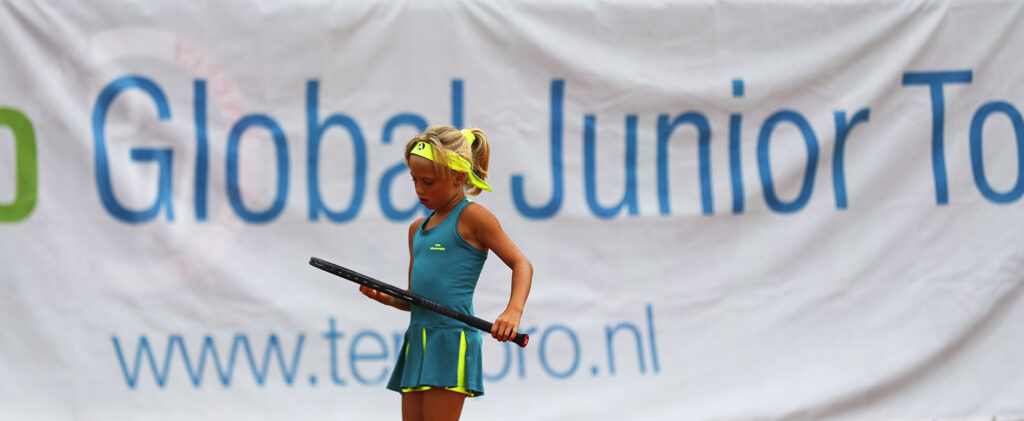Tennis Psychology
Body Language: How to make a Golden Impression
Body language is nonverbal communication consisting of postures, gestures, facial expressions and eye movements. Let’s take a look at how to make a golden impression.
Warriors Don’t Slouch Into Battle
Body language is a two-way process: Your own body reveals your thoughts and feelings to others; and other people’s body language reveals their thoughts and feelings to you. The body language of tennis athletes and coaches is easy to pick up while watching a competition and is usually representative of who is winning or losing at the moment. On tournament day, what is your body language saying? What image do you want to project?
Are you feeling intimidated before playing a top-ranked opponent? If so, are you taking a few moments to go through a few simple motions that can improve your readiness? According to more recent research by psychologists Dana Carney, Amy Cuddy and Andy Yap, simply holding your body in open, expansive (versus closed, contractive) postures for only a couple of minutes can produce meaningful elevations in testosterone, decreases in cortisol and increased feelings of power and tolerance for risk when it is needed. Thus, higher-power postures can generate powerful responses. as such, looking like a winner will help you play like a winner.

Positive Upbeat Body Language vs Negative Glum Body Language
Body language can be positive or negative. Let’s take a look at some positive attributes:-
- SMILING
- CHIN UP
- SHOULDERS BACK
- CHEST OUT
- STANDING TALL
- WALKING STRONG
Now here are some negative attributes:-
- FROWNING
- SHAKING YOUR HEAD
- EYES DOWNCAST
- SHOULDERS HUNCHED
- DRAGGING YOUR FEET
Adopt the pose of a supremely confident player for the duration of your practices and games. Acting this way will help you stay in a winning frame of mind, regardless of the score or situation. When you are pumped up at practice, stand tall and walk strong. When you are playing an undefeated opponent, show your swagger, but keep in mind “Mr or Ms Cool”.
Are you prone to making painful or weird facial expressions or showing negative body language after missing a winning shot or making an unforced error? To perform at a champion’s level, keep a positive demeanour and attitude rather than pouting, moping or looking sour-faced. Your body language immediately conveys a message to your opponent that you are in trouble and not at your strongest mentally. You cannot allow yourself to be mentally beaten or fazed, no matter what happens if you want to avoid giving your opponent the upper hand.

Strategies for keeping the upper hand
Let’s take a look at some strategies that you can implement to keep your opponent from having then mental advantage over you.
Just Smile, You’ll Feel Better
Imagine that you are feeling down, perhaps that last point didn’t go quite as expected. But there isn’t time for exploring your feelings and certainly not to replay the shot in your mind. How quickly can you get into a better mood? Perhaps you’ve heard the expression “Just smile, you’ll feel better!”. Does the act of smiling itself really make you feel better?
Findings from a 1988 research study by psychologist Fritz Strack and his colleagues revealed that simply creating a smile by clenching a pen lightly between the teeth will almost immediately make people happier about the situation they are in! Obviously you don’t need a pen on court but if you keep the smile in mind when you need a quick boost in mood, put a big confident smile on your face after that dreadful miss. Do not simply drag a down mood into your performance that will almost certainly affect the next few points.
Always Give Your BEST
Psychologists have coined the handy acronym for giving your BEST – “Body Language. Eye Contact, Speech and Tone of Voice.” Strive to always give your absolute BEST:
- Body language – strong, not slumped
- Eye contact – focused, not wandering
- Speech – assertive, not passive
- Tone of voice – self-assured, not soft
Strive to sharpen these four points of your communication further. Working on them during practice training will make them more natural during the tournament match.
Dress For Success
As a final point, don’t overlook your appearance. Wear your kit with pride, you represent yourself, your club and later on in professional life, your sponsors! Remember, if you look good, you feel good and if you feel good, you play good and if you play good you win the tournament. Dress for Success!
At the end of the day, tennis, like all sports, and competition against others, combine the factors of chance, practice, skill and competitiveness. While not all these components are in your control, each performance can be elevated by a strong mental attitude. Techniques to build your mental strength in practices and tournaments include utilising the BEST routine, valuing your appearance and putting on a smile to push you past your perceived physical limitations.
How Do You Keep Positive During Matches?
Do you recognise any of these body language traits in your game play? We’d love to hear your thoughts or suggestions on how you tackle your down moments in matches.
Contact us on WhatsApp +44 7849 502790 or email us at info@zoealexanderuk.com. Alternatively if you wish to leave us your Comments, see our section below.
Excerpts taken from “The Champion’s Mind – How Great Athletes Think Train and Thrive by Jim Afremow PhD. ISBN 978-1-62336-562-2 – An excellent read from a leading sports psychology consultant and licensed counsellor.



